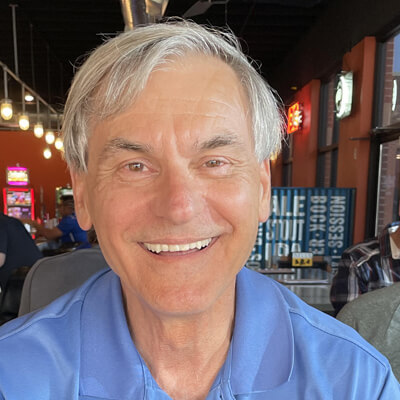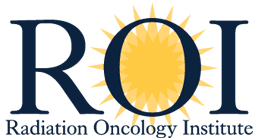Peter Hulick, MD, MS, FASTRO

Please tell us about your role at MCV- VCU and any other place you were during your career.
I was on the MCV affiliate faculty early in my career under Dr. Tapan Hazra, from about 1977 to 1987, while in private practice in Lynchburg, VA. I travelled to Richmond once a month to present my interesting cases to the residents, and occasionally residents would rotate out to my office. I had a similar arrangement with UVA and was able to keep a finger on academic medicine as a result. Twenty-five years later, after I finished working in Boston, I returned to Virginia (to retire) and was invited to join the faculty as an active, part-time member, for the purpose of covering vacations and occasional shortages (including one maternity leave). This also led to 18 months part-time at the McGuire VA Hospital radiation oncology department, which MCV-VCU staffs.
My intermediate steps between the Virginia positions were in Lancaster, PA, where I spent five years setting up a radiation oncology department at St. Joseph Hospital, along with 12 years in Wilmington/Newark, DE where I helped start a multidisciplinary breast center, the Helen F. Graham Cancer Center, and served as department Chair for six years. Following this, for seven or eight years, I worked for Shields Oncology at several offices in the Boston area.
The first half of my career was in solo private practice, and the second half was in more academic positions, with affiliate positions at Hahnemann and Jefferson, in addition to my current MCV-VCU appointment. My avocation the entire time has been with peer review and quality improvement, starting with the Patterns of Care study during my residency, and being deeply involved with the accreditation program of the American College of Radiology. I was greatly honored to be named an ACR Fellow and included in the inaugural class of ASTRO Fellows.
Why did you choose radiation oncology as your specialty?
My father was a radiologist (in those days, a radiologist did diagnostic and therapeutic radiology), and I witnessed my first fluoro study at about age seven, red goggles and all. I thought I would become a diagnostic radiologist but enjoyed a rotation in radiation oncology at the Wilmington (DE) Medical Center so much that I switched to therapeutic radiology, as it was then called. Radiation oncology is a great blend of interaction with patients, technology, and imaging.
What was the greatest advance made in the field of radiation oncology during your career?
The use of computers. As “young” as I am, I started out in the era in which there was no cross sectional or digital imaging of any sort. During my residency, head CT studies became available, requiring four minutes per slice. But Pandora's box was opened. Look at where we are now.
In what ways would you like to see the field of radiation oncology grow or evolve in the future?
There are four.
- We now need to drill down to the molecular level to target only the bad cells and spare the good.
- It is time we personalize better the use of our individual, specific DNA (and the cancer’s specific DNA) for the optimal use of radiation and chemo drugs.
- Create a better interdisciplinary integration of cancer services that are more convenient to our patients.
- Meet our goals to broaden diversity, equity and inclusion.
Tell us about your involvement with the ROI as a Founders’ Circle donor and an annual donor, as well as serving on the ROI Development Committee.
There hasn't been a year since graduation that I have not contributed to my medical school and to at least one of my favored societies (ASTRO, ACR, RSNA). It is our responsibility to pay forward all the blessings we have received from our predecessors. I was a bit taken aback when I served on the ROI Development Committee, getting mostly declines from so many people that I knew benefitted so greatly from our societies. I hope, in time, they develop a true sense of responsibility, appreciation, and benevolence, and give back/forward as generously as they can. I was very pleased that ASTRO created an enticement to give early by adopting a matching program. That caught my attention. While on the Development Committee, I was impressed by all the hard work of everyone on it and the precious time they devoted.
What prompted you to make a contribution to ROI this year in honor of Dr. Thomas Eichler?
Tom is a longtime friend with whom I have almost daily text or email contact. I witnessed firsthand his extreme dedication both before he was elected and throughout his terms in the succession of roles he has played. His ASTRO Presidency came at an opportune time in his career in which he could lighten his clinical load and give his all to the cause. And what a blessing that was, with the challenges the pandemic brought about. One of the hardest things I had to say (when he asked) was that I thought his Annual Meeting should be virtual only. His hard work and dedication are very much worth honoring, and I hope my contribution is the first of many to recognize the role he played.
What would you tell others who are considering a financial contribution to the ROI? Why should they support the ROI?
I would ask that they take a close look at how their lives and their careers have prospered from research done by our predecessors, both before and as a result of the creation of the ROI. Have they ever been supported in any way by those who have gone before us? The answer is certainly a universal “yes.” So please, at some point in your career, earlier the better, make contributions to perpetuate that process. You didn’t get where you are without the help of those who came before you.














